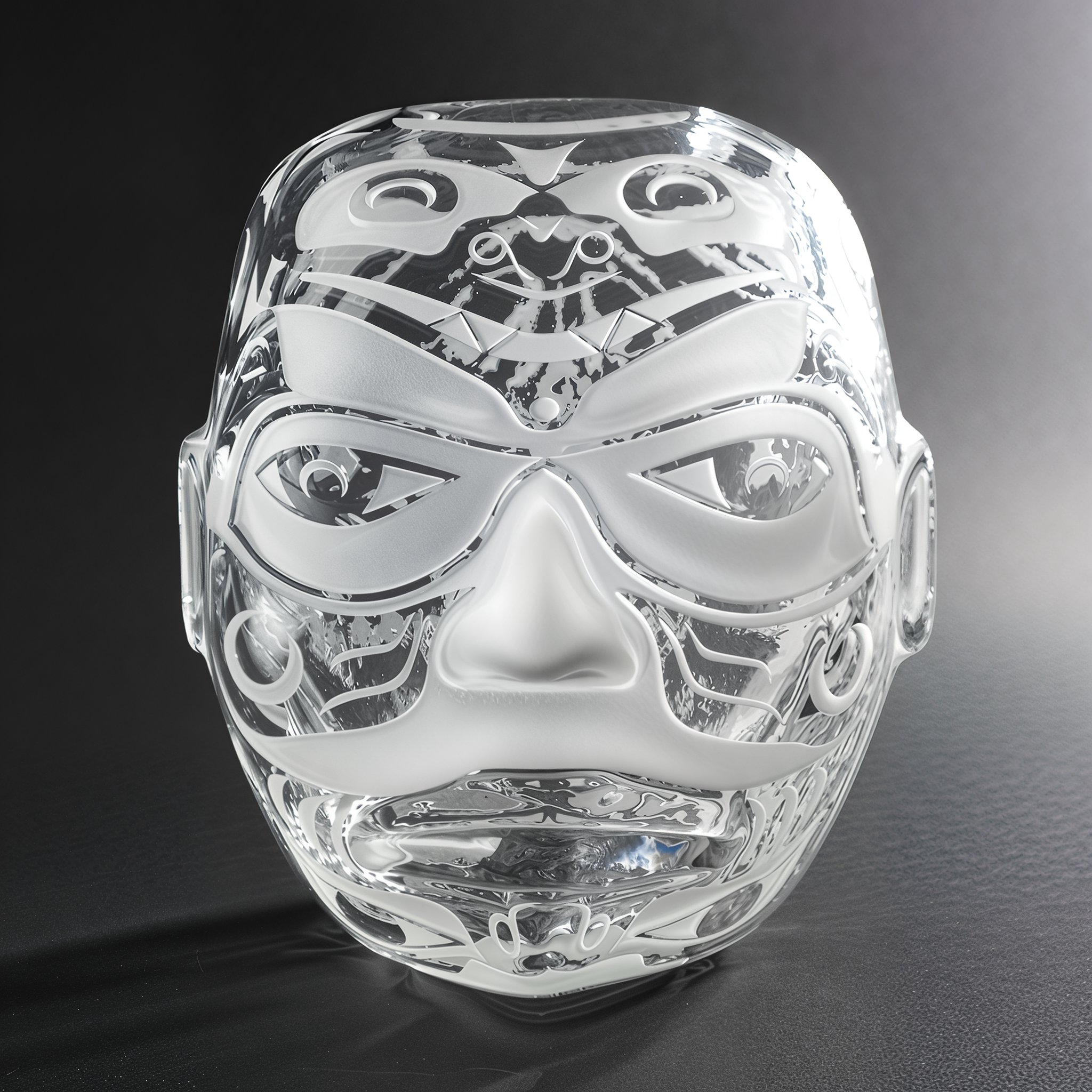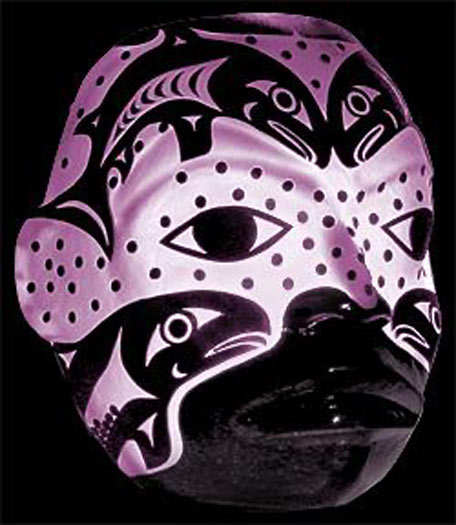Ed Archie NoiseCat grew up in British Columbia’s remote, mountainous interior with his mother’s people, the Canim Lake Band of Shuswap Indians. He draws inspiration from his mother’s plateau culture, and from his father’s people, the Stlitlimx, closer to the coast. He draws on the stories of his ancestors to create innovative images executed with extraordinary craftsmanship.
NoiseCat loves to work on a grand scale. He took the top prize at Portland’s first annual Indian Art Northwest market with a freestanding, six-foot square carved cedar screen. He won a major Midwest public art commission with a four-foot high portrait mask honoring Little Crow, one of the regions great chiefs. He also works on a smaller scale carving masks, rattles, panels, puppets and more. Many pieces incorporate transformational elements. He recently introduced two new lines of work: sculptural jewelry in silver, gold and semi-precious stones; and art furniture that joins the structural forms of the Northwest longhouse with traditional Japanese woodworking techniques.
NoiseCat graduated from the prestigious Emily Carr College of Art and Design, where he studied printmaking. In 1986 he headed to New York to work as a fine art lithographer at print shops including world-renowned Tyler Graphics. In the decade that followed, he lived in Boston, Minneapolis, Miami and Oakland. He now resides in Santa Fe.
In 2024, Ed Archie Noisecat was able to tell his story about growing up in the St. Joseph’s Residential School in an emotional and profound National Geographic documentary, Sugarcane. This documentary was directed by his son, Julian Brave NoiseCat, and Emily Cassie after the discovery of evidence of unmarked graves on the grounds of an Indian residential school run by the Catholic Church in Canada in 2021. It is a testament to native resilience and “illuminates the beauty of a community breaking cycles of intergenerational trauma and finding the strength to persevere.”



